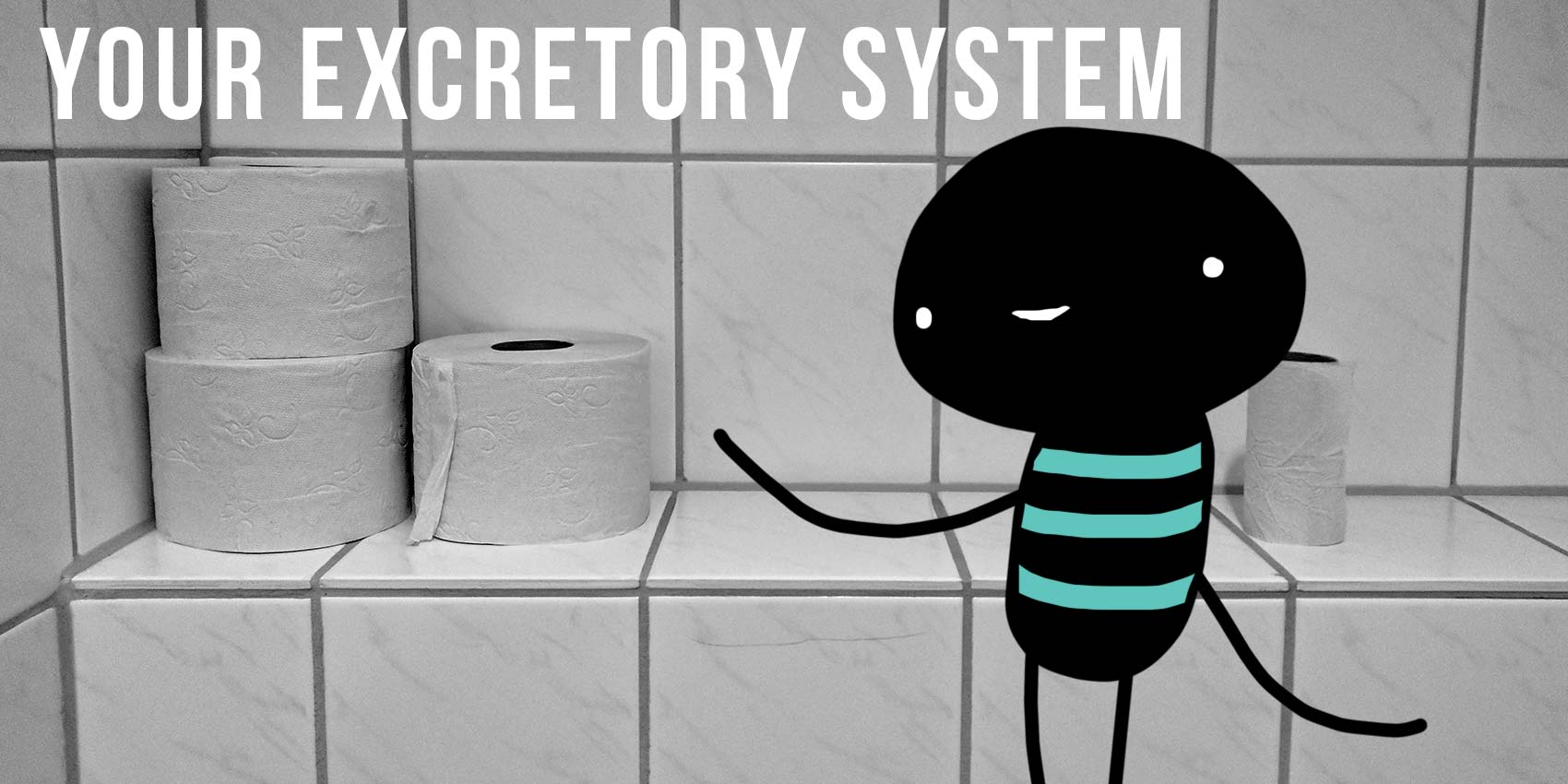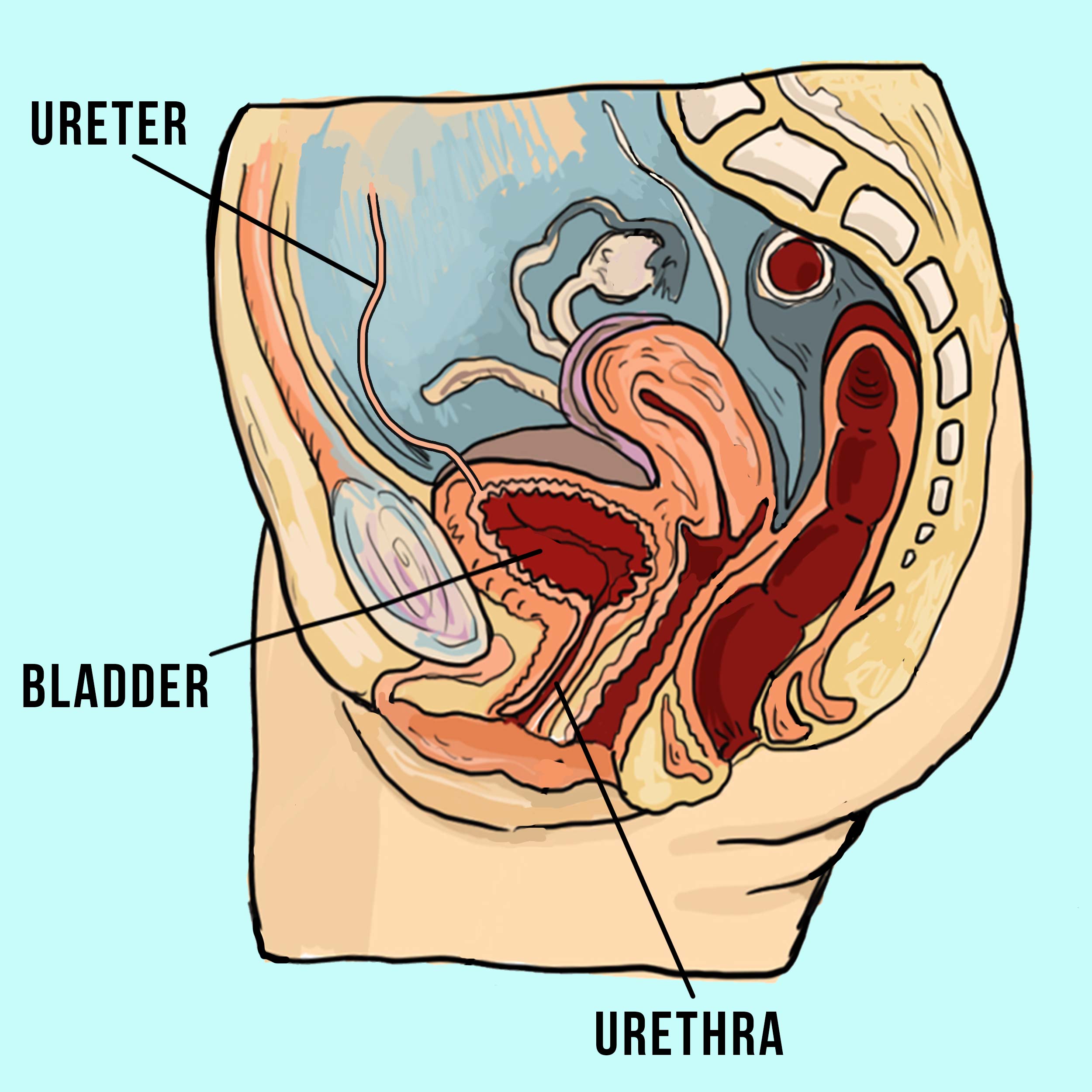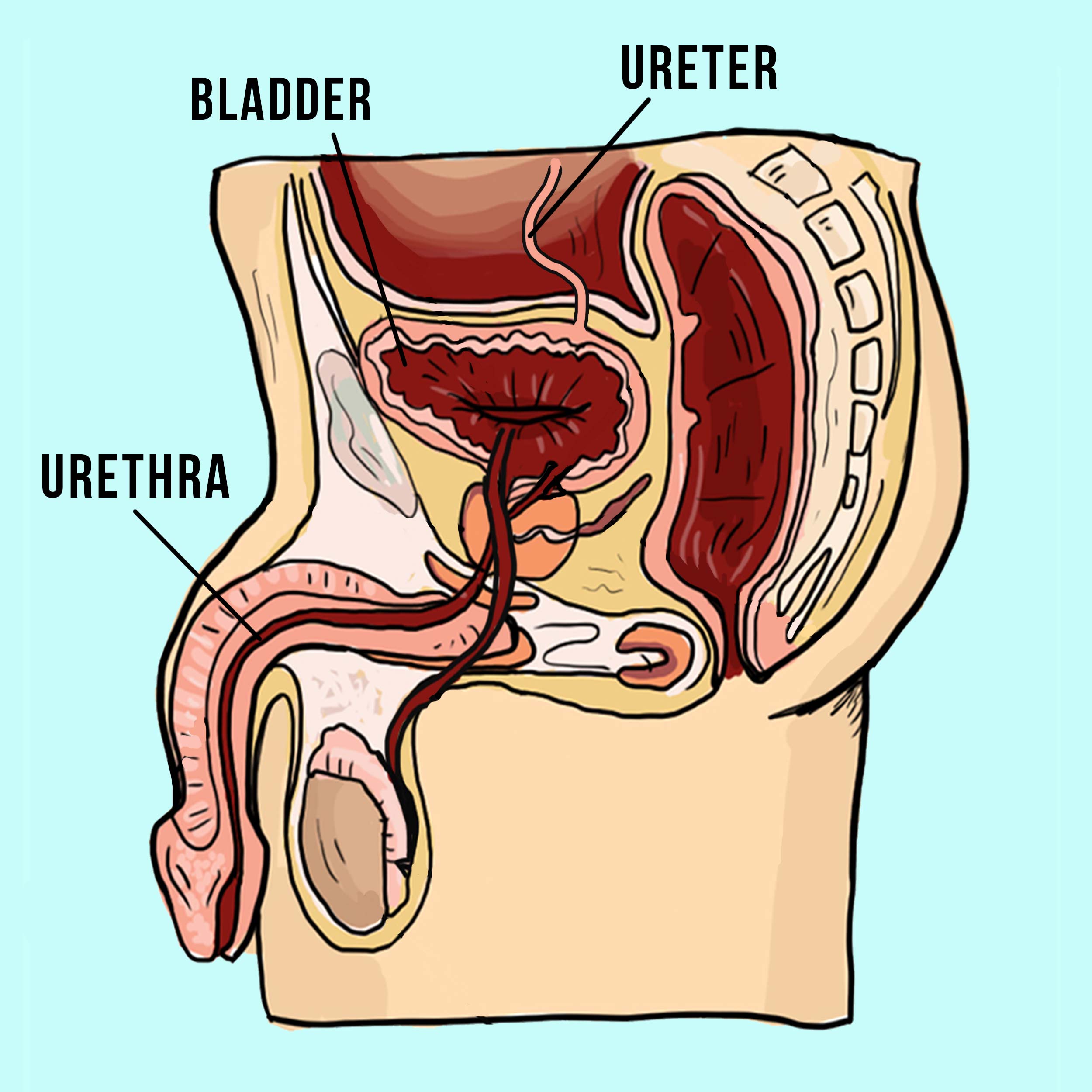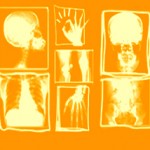11 Nov Your excretory system

Your Excretory System is what gets rid of all the “stuff” in your body that it doesn’t need. What kind of “stuff”? All kinds! Cellular waste, toxins, excess water, excess nutrients… anything your body doesn’t need to maintain homeostasis (balance, remember? Like Goldilocks, not too hot, not too thirsty) and anything that could potentially be harmful to this state. So even though you might be thinking, “Ewww… am I really going to have to learn about poop and pee right now?” this is a very important system. Without it, your body would poison itself and you would end up kicking the can, meeting the grim reaper, biting the dust, sleeping with the fishes… in other words you would die.
So, your excretory system is made up of the kidneys, ureters, bladder, and urethra, as well as your stomach, intestines (large and small) and various organs that cleanse the blood (like the liver). Let’s look at how it works…
Now for all the poop scoop:
When you think about excretion, you may think about the most obvious—number one and number two. But so many other organs are involved as well. For example, your kidneys, intestines and lungs play a role in cleansing your blood and the air you breathe. All of this helps maintain the homeostatic environment in which you thrive. Here you will learn more about each one.
Your kidneys are the major excretory organs of the body as they are vital in your ability to eliminate unnecessary chemicals. The main function of the kidneys (you have two of them, btw) is to filter waste from the blood.

DID YOU KNOW? The kidneys filter about 180 liters of blood a day which means each blood cell passes through the kidneys about 60 times a day. Who knew??!! About 1.5 liters of urine a day is made from this filtration process.
(Source: https://mcb.berkeley.edu/courses/mcb135e/kidneyprocess.html)
The waste products from that filtration process are urea, creatinine, ammonia and uric acid. Not that important to know, except that they are toxic in concentrated amounts—meaning in amounts where there is a high percentage of those products in a low percentage of water (or another non-toxic solution).

This is why your urine is 95% water and 5% waste—the water keeps the waste concentration low. Urine is then excreted once it passes through the ureters into the bladder and finally out the urethra. (BTW, you want to pass urine that is nearly clear in color—that’s how you know you are staying hydrated. Dark yellow urine is a sign that you are not drinking enough water. Also, if it hurts (stings or burns) when you urinate you could have a bladder infection, so make sure you tell a parent or see a doctor if this happens to you. Bladder infections are easy to treat but left untreated can affect the kidneys and this is more dangerous.)

Your intestines are responsible for absorbing nutrients into you body and then moving the remaining waste materials out of your body. Food passes through the small intestine and then into the large intestine which consists of the cecum, colon, rectum and anal canal. The large intestine helps extract salt and water before moving the remaining solid waste to the rectum. The rectum temporarily stores the feces (poop) for passage through the anal canal and out of your body. Yippee!
However, if you “hold it in” too long, your body passes the feces back to the colon for more water and salt removal—thus, if defecation (pooping) is delayed for too long, constipation can occur (you know, when you have to go, but can’t). Not good. Very uncomfortable and over the long-term can cause hemorrhoids to swell and protrude (meaning, stick out) from your anus. BTW, you should go regularly, at least once a day. If you are not “regular” this way, you may want to talk to your parent or doctor about it. Getting rid of your waste products is important and you feel better when you do! There are lots of dietary changes you can make to promote being “regular.” Specifically, you can add fiber to your diet. You can read about that here.

DID YOU KNOW? Your skin is also part of the excretory system. When you sweat you are not just lowering your body temperature but getting rid of toxins.




Post Question:
If you were the author of the book, Everyone Poops, what would you like everyone to know?
Answer the post question here
What's being said